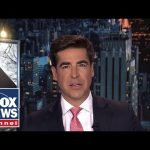Robert F. Kennedy Jr. has officially been confirmed as Secretary of Health and Human Services (HHS) under President Donald Trump’s administration, marking a significant and controversial appointment. The Senate narrowly approved Kennedy’s nomination in a 52-48 vote, with all Democrats and one Republican, Senator Mitch McConnell, voting against him. As the head of HHS, Kennedy will oversee critical agencies such as the Centers for Disease Control and Prevention (CDC), Food and Drug Administration (FDA), and National Institutes of Health (NIH), managing a $1.8 trillion budget that impacts nearly half of the U.S. population.
Kennedy’s confirmation has sparked heated debate due to his history of vaccine skepticism and health-related conspiracy theories. A longtime environmental attorney and founder of the anti-vaccine nonprofit Children’s Health Defense, Kennedy has promoted widely debunked claims linking vaccines to autism and criticized public health measures such as water fluoridation. Despite these controversies, Kennedy insists he is not “anti-vaccine,” emphasizing that his children are vaccinated. However, critics argue that his rhetoric undermines public trust in vaccines and could jeopardize progress in combating preventable diseases.
Supporters of Kennedy’s appointment viewed him as a disruptor who would challenge entrenched bureaucracies and corporate influence in healthcare. They applaud his focus on addressing chronic diseases, improving nutrition, and increasing transparency in medical practices. During his confirmation hearings, Kennedy pledged to “Make America Healthy Again,” aligning with Trump’s broader agenda of reforming federal institutions. His supporters believe his outsider perspective will bring much-needed accountability to agencies like the CDC and FDA, which have faced criticism for their handling of public health crises.
However, Kennedy’s critics warned that his leadership could have serious consequences for public health. Democrats have expressed concerns that his views on vaccines and alternative therapies could erode vaccination rates and hinder efforts to combat infectious diseases. Senator Mitch McConnell, a polio survivor, opposed Kennedy’s nomination, citing his “record of trafficking in dangerous conspiracy theories” as incompatible with the responsibilities of HHS. Public health experts worry that Kennedy’s proposals—such as halting infectious disease research to prioritize chronic illness studies—could leave the nation vulnerable to future pandemics.
As Kennedy assumes his role, the stakes are high for both public health policy and political discourse. His tenure will likely test the balance between challenging institutional norms and maintaining evidence-based practices. While his supporters see him as a champion for reform, skeptics fear his controversial views could undermine decades of progress in public health. The coming months will reveal whether Kennedy can navigate these challenges effectively or if his leadership will deepen divisions in an already polarized




